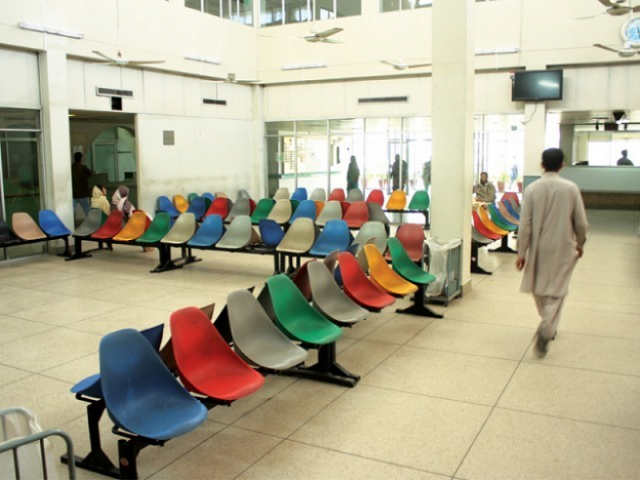Doctors end boycott after successful negotiations
Increased salaries of doctors will be disbursed after the approval by provincial cabinet, says Wahab

Increased salaries of doctors will be disbursed after the approval by provincial cabinet, says Wahab.
PHOTO: FILE
After the failed talks on Saturday, Adviser to chief minister on Information, Law and Anti-Corruption Barrister Murtaza Wahab once again summoned the YDA for negotiations at his residence. Wahab, Health Secretary Saeed Ahmed Awan and five representatives of YDA, including Dr Yaseen Imrani, Dr Mehboob Ali, Dr Kamal Dev, Dr Umar Sultan and Dr Waris, attended the meeting.
Wahab said that the Sindh government was serious in resolving the issue. He said that Sindh chief minister had already assured the fulfillment of YDA's demands and the salaries of doctors in Sindh had been increased to match their counterparts in other provinces. He added the demands would be approved by the provincial cabinet and the salaries of the doctors will be issued after the approval.
Wahab further said that protest was everyone's democratic right, however, serious steps like strikes in hospitals should not be appreciated. He said, "I hope that the people related to the prestigious professions in medicine will prefer negotiations for issues in the future".
Young doctors' strike in Sindh enters fourth day
The OPDs remained closed on Sunday as it was the weekend and the OTs were also boycotted.
Earlier on Sunday, the Sindh health department, taking measures to restore the services at hospitals, had issued orders to open the out-patient departments (OPDs) of all government hospitals starting Monday. It had instructed the hospitals' administration to make a list of the protesting doctors.
Locked in a deadlock and with the day-to-day functioning of government hospitals throughout the province at a standstill, the Sindh government had issued the notification to senior officials and authorities of government hospitals.
The health department had instructed the administrations of all government hospitals of the province to keep all the departments open. It had instructed the administration to make sure the doctors and other staff reported for duty. The health department had also instructed the administration to make a list of doctors on strike and to take action against them in accordance with the Constitution of 1973.
The Sindh government had said that they found the behaviour of doctors unprofessional.
Earlier, on January 30, the Sindh government had assured that the doctors' demands would be accepted and a notification would be issued in this regard within seven days. The notification was issued and so the doctors continued their strike.
After the health department gave orders to open all departments of hospitals, they responded by giving the government one day to resolve the issue, maintaining that they would continue with the boycott if the issue was not resolved. They had further said that if the government persisted in denying their demands, they would expand the scope of their strike and boycott the polio vaccine movement and shut the emergency wards.
The doctors' demanded that their salaries and pensions be increased to that of their counterparts in Punjab and more than 2,000 doctors from BS-18 be promoted to BS-20 posts.












1724319076-0/Untitled-design-(5)1724319076-0-208x130.webp)






COMMENTS
Comments are moderated and generally will be posted if they are on-topic and not abusive.
For more information, please see our Comments FAQ